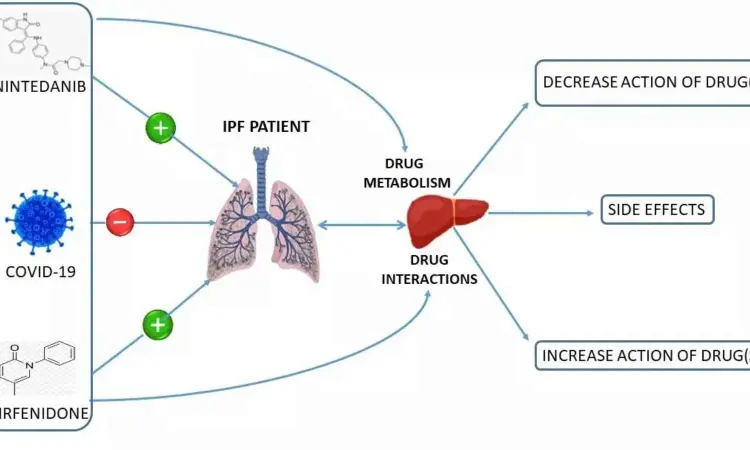- Home
- Medical news & Guidelines
- Anesthesiology
- Cardiology and CTVS
- Critical Care
- Dentistry
- Dermatology
- Diabetes and Endocrinology
- ENT
- Gastroenterology
- Medicine
- Nephrology
- Neurology
- Obstretics-Gynaecology
- Oncology
- Ophthalmology
- Orthopaedics
- Pediatrics-Neonatology
- Psychiatry
- Pulmonology
- Radiology
- Surgery
- Urology
- Laboratory Medicine
- Diet
- Nursing
- Paramedical
- Physiotherapy
- Health news
- Fact Check
- Bone Health Fact Check
- Brain Health Fact Check
- Cancer Related Fact Check
- Child Care Fact Check
- Dental and oral health fact check
- Diabetes and metabolic health fact check
- Diet and Nutrition Fact Check
- Eye and ENT Care Fact Check
- Fitness fact check
- Gut health fact check
- Heart health fact check
- Kidney health fact check
- Medical education fact check
- Men's health fact check
- Respiratory fact check
- Skin and hair care fact check
- Vaccine and Immunization fact check
- Women's health fact check
- AYUSH
- State News
- Andaman and Nicobar Islands
- Andhra Pradesh
- Arunachal Pradesh
- Assam
- Bihar
- Chandigarh
- Chattisgarh
- Dadra and Nagar Haveli
- Daman and Diu
- Delhi
- Goa
- Gujarat
- Haryana
- Himachal Pradesh
- Jammu & Kashmir
- Jharkhand
- Karnataka
- Kerala
- Ladakh
- Lakshadweep
- Madhya Pradesh
- Maharashtra
- Manipur
- Meghalaya
- Mizoram
- Nagaland
- Odisha
- Puducherry
- Punjab
- Rajasthan
- Sikkim
- Tamil Nadu
- Telangana
- Tripura
- Uttar Pradesh
- Uttrakhand
- West Bengal
- Medical Education
- Industry
Nintedanib and pirfenidone combo tied to less decline in FVC compared with monotherapy in IPF

Nintedanib and pirfenidone combo well tolerated and tied to less decline in FVC compared with monotherapy in IPF suggests a new study published in the Chest Journal.
Idiopathic pulmonary fibrosis (IPF) is a chronic, progressive, fibrotic interstitial lung disease. Nintedanib and pirfenidone are anti-fibrotic medications that have been shown to slow the decline in forced vital capacity (FVC) in IPF. However, literature evaluating the use of nintedanib and pirfenidone together as “combination therapy” is sparse.
A systematic search based on the Preferred Reporting Items for Systematic Reviews and Meta-Analyses (PRISMA) guidelines was performed on three databases (Pubmed, Embase, and Web of Science). Studies evaluating the use of nintedanib with pirfenidone (“combination therapy”) among patients diagnosed with IPF were included. Adverse events (AE) were events related to anti-fibrotic therapy. Serious AEs were AEs that were life-threatening, requiring hospitalization, or resulting in death/disability. Statistical analysis was performed using Stata 17.0 (College Station, Texas).
RESULTS:
Seven studies involving a total of 238 patients (78.8% males) receiving combination therapy with nintedanib (200-300 mg/day) and pirfenidone (600-2400 mg/day) were identified. The mean age was 68.2 years (SD 7.1). The average duration of combination therapy was 4.5 months (range 0.75-6) with patients being followed for an average duration of 7.5 months (range 1-14). Participants had a mean DLCO of 48.2% predicted [95% CI 45.2-51.2], and a mean FVC of 71.3% predicted [95% CI 64.1-78.5]. Among those receiving combination therapy, 79% [95% CI 70-88] experienced an AE, 25% [95% CI 13-36] experienced an AE leading to discontinuation of therapy, and 6% [95% CI 1-10] experienced a serious AE. Diarrhea (41%), nausea (35%), vomiting (21.5%), loss of appetite (19.2%), fatigue (15%), elevated liver enzymes (8%), and photosensitivity (7%) were common AEs. Of those discontinuing therapy due to AEs, the most common cause was diarrhea (31%).
In studies comparing anti-fibrotic monotherapy with combination therapy, participants experiencing an AE was 80% [95% CI 57-92] in monotherapy versus 79% [95% CI 55-92] in combination therapy. 10% [95% CI 4-21] of monotherapy versus 34% [95% CI 21-50] receiving combination therapy experienced an AE leading to discontinuation of therapy (p=0.001). 8% [95% CI 4-17] of monotherapy versus 5% [95% CI 2-13] of combination therapy experienced a serious AE.
Studies assessing the exploratory efficacy demonstrated a trend toward decreased rate of FVC decline (statistically significant in two out of five studies) among patients receiving combination therapy compared to monotherapy.
CONCLUSIONS: Combination therapy demonstrated an adverse effect profile similar to that of monotherapy with pirfenidone or nintedanib. Gastrointestinal AEs predominated with diarrhea being the most common AE leading to discontinuation of therapy. Limited data on exploratory efficacy suggest a potential benefit of combination therapy over monotherapy in slowing the decline of FVC.
Combination therapy with nintedanib and pirfenidone may present as a viable therapeutic strategy for patients with IPF with limited data regarding safety and efficacy. Existing literature indicates that combination therapy is well tolerated with a safety profile similar to that of monotherapy and may also favorably slow the decline of FVC. However, there is a need for larger clinical trials assessing the long-term safety and efficacy of this approach.
Reference:
TANMAY GANDHI, ANIRUDDH SHAH, PRACHI SALUJA, EMILY KOCUREK. COMBINATION THERAPY WITH PIRFENIDONE AND NINTEDANIB IN IDIOPATHIC PULMONARY FIBROSIS: A SYSTEMATIC REVIEW AND META-ANALYSIS
DOI:https://doi.org/10.1016/j.chest.2023.07.1984
Keywords:
Nintedanib, pirfenidone, combo, well, tolerated, tied, less, decline, FVC, compared, monotherapy, IPF, TANMAY GANDHI, ANIRUDDH SHAH, PRACHI SALUJA, EMILY KOCUREK.
Dr. Shravani Dali has completed her BDS from Pravara institute of medical sciences, loni. Following which she extensively worked in the healthcare sector for 2+ years. She has been actively involved in writing blogs in field of health and wellness. Currently she is pursuing her Masters of public health-health administration from Tata institute of social sciences. She can be contacted at editorial@medicaldialogues.in.
Dr Kamal Kant Kohli-MBBS, DTCD- a chest specialist with more than 30 years of practice and a flair for writing clinical articles, Dr Kamal Kant Kohli joined Medical Dialogues as a Chief Editor of Medical News. Besides writing articles, as an editor, he proofreads and verifies all the medical content published on Medical Dialogues including those coming from journals, studies,medical conferences,guidelines etc. Email: drkohli@medicaldialogues.in. Contact no. 011-43720751


